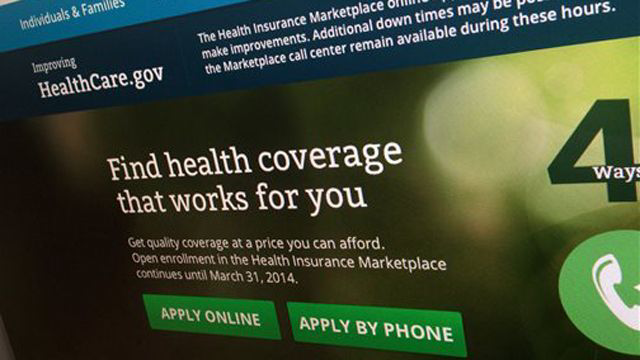According to a new report prepared on behalf of the Urban Institute for the Robert Wood Johnson Foundation, the impetus for covering more taxpayers under Obamacare could come from an intriguing source: Tax return preparers.
The authors of the paper – Stan Dorn, Matthew Buettgens and Jay Dev – draw a correlation between uninsured Americans who qualify for subsidies in the health care law and those who use tax return preparers to file their returns. They maintain that tax return preparers can provide valuable assistance to these individuals as the March 31 deadline for open enrollment in the health insurance marketplaces rapidly approaches
[This is the eighth in a series of articles on new developments relating to the Patient Protection and Affordable Care Act of 2010 (aka “Obamacare”).] See Also:
- Equality in Employer Health Care Plans Delayed
- IRS Proposes Fines for Noncompliance with Health Insurance Mandate
- IRS Faces Customer Service Challenges Under Obamacare
- New Bill Ups the Stakes in Obamacare Showdown
- New CBO Report Links Obamacare to Job Losses
- Obama Administration Postpones IRS Insurance Mandate Again
- Obamacare May Be Delayed, But The Excise Tax Isn't – How Much Can It Cost Businesses?
The findings in the report indicate that more than 74 percent of the 25.7 million who will qualify for Obamacare’s affordability programs in 2014 will file federal income tax returns. This includes:
- 3.8 million Medicaid-eligible uninsured childless adults (53 percent of such adults);
- 2.3 million uninsured Medicaid-eligible parents (70 percent of such parents);
- 3.1 million uninsured children who qualify for the Children’s Health Insurance Program (CHIP) or Medicaid (72 percent of such children); and
- 9.7 million uninsured consumers who qualify for CHIP subsidies (88 percent of such uninsured).
The authors also found that more than 90 percent of adults under age 35 and children who will qualify for health insurance subsidies are in families that file federal income tax returns. Among all eligible uninsured filing tax returns, 43 percent are adults under age 35. Thus, uninsured Americans eligible for subsidies comprise a younger segment of the population than consumers who have enrolled through the health insurance marketplace by February 1. According to government figures, only 25 percent of this latter group was under age 35.
Significantly, most low-income taxpayers use tax return preparers to file their returns. The authors pointed to numerous statistics linking low-income returns to tax preparer assistance. For instance, from 2009 through 2011 an average of 64.6 percent of taxpayers claiming the Earned Income Credit (EIC) were filed with the aid of tax return preparers, as compared to 59.1 percent of other returns.
It was further noted that the IRS receives roughly 61 percent of all returns by the end of the March, including 67 percent of the returns claiming the EIC. Combined with the findings that most of Obamacare’s target audience files tax returns, the authors suggest that in-person tax preparers could be an important source of assistance to uninsured Americans.
Along with tax return preparers, they say software vendors could develop tools that allow taxpayers to complete a paper application for insurance affordability programs just by answering just a few questions beyond those needed to file a tax return. If this effort includes vendors participating in the IRS’ Free File program, taxpayers might simultaneously file tax returns and apply for subsidized health insurance without paying a fee. This may be coordinated with forms required by tax return preparers.
The study concludes that tax return preparers have the capacity to reach many uninsured taxpayers, including most adults who qualify for subsidies under Obamacare. Practitioners could play a pivotal role in helping to boost the ranks of those who must sign up for health insurance coverage. The entire report can be read online.
Thanks for reading CPA Practice Advisor!
Subscribe Already registered? Log In
Need more information? Read the FAQs
Tags: Benefits, Income Taxes, Legislation





